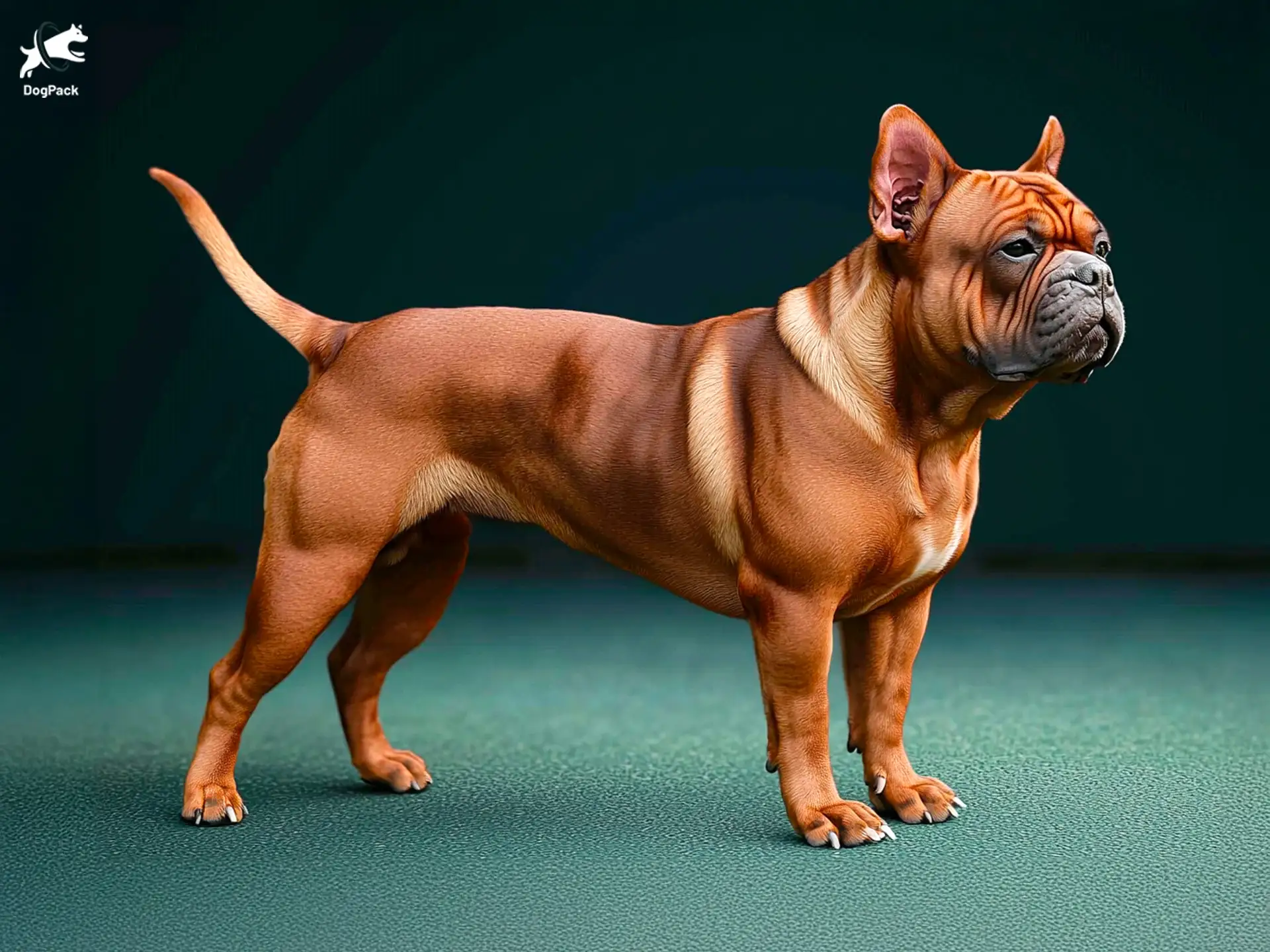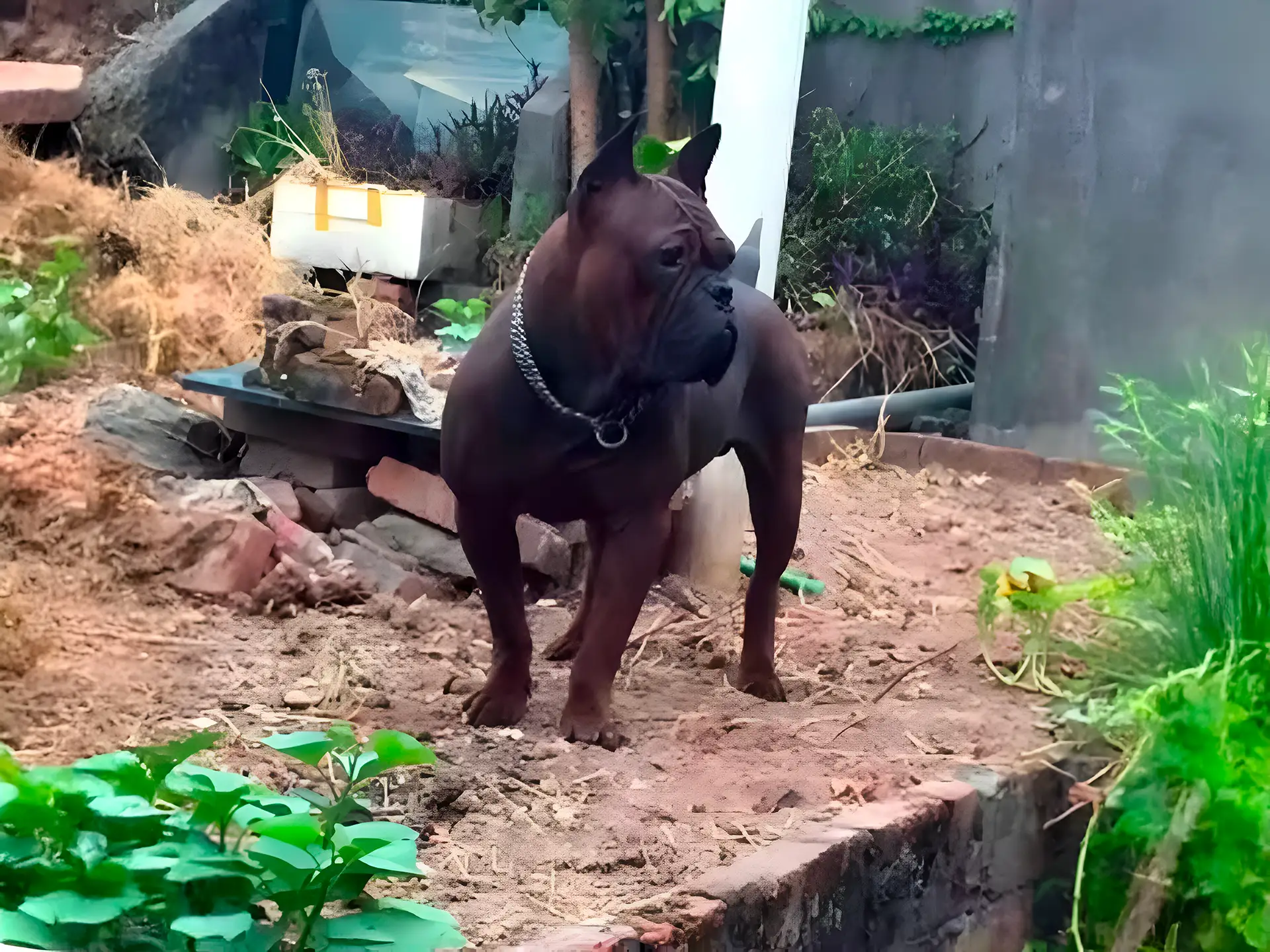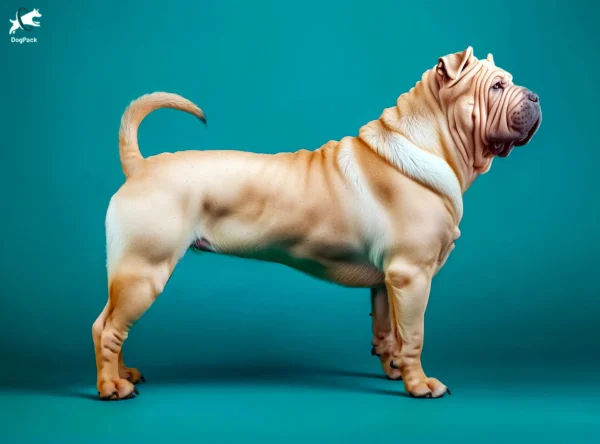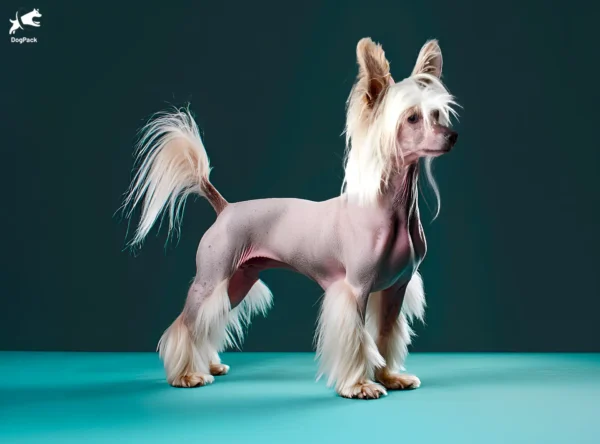Chongqing Dog Breed Info & Overview
The Chongqing Dog, a rare and ancient breed from China’s mountainous regions, is known for its muscular physique and steadfast loyalty. Historically used as both a guardian and hunter, this unique dog has been valued for centuries. With its distinctive look and golden-hearted nature, the Chongqing Dog stands as one of China’s best-kept canine secrets, offering both strength and devotion to those who appreciate its rich heritage.
Characteristics
Pictures
Breed History
The Chongqing Dog traces its roots back over 2,000 years to the Han Dynasty in China. Originating from the mountainous regions of Chongqing and Sichuan, these dogs were prized for their hunting and guarding abilities. They were commonly found in rural households, serving as both protectors and companions.
Due to their isolation in remote areas, the breed remained relatively unknown outside their native region. The Chongqing Dog survived centuries of political and social upheaval in China, largely because of their valued role in local communities. Their unique appearance and steadfast nature made them indispensable to the families they served.
Sadly, the breed faced near extinction during the Cultural Revolution, but dedicated enthusiasts have worked tirelessly to revive their numbers. Today, the Chongqing Dog is still considered rare, even within China. Efforts continue to preserve this ancient breed, highlighting its cultural significance and historical importance.
Temperament, Personality
The Chongqing Dog is known for its unwavering loyalty and strong protective instincts. They form deep bonds with their families and are always on the lookout for potential threats. This breed is naturally wary of strangers, making them excellent watchdogs who will alert you to any unusual activity.
With children and other pets, the Chongqing Dog can be affectionate and gentle, provided they are properly socialized from a young age. Their intelligent and perceptive nature means they quickly pick up on family dynamics. However, they may not tolerate rough handling, so interactions with younger kids should be supervised.
Due to their strong-willed personality, these dogs are best suited for experienced owners who can provide firm but fair leadership. The Chongqing Dog thrives in a home where they have a clear role and understand the boundaries. Their independent streak means they appreciate a respectful approach rather than harsh corrections.
Physical Characteristics
The Chongqing Dog boasts a muscular and athletic build, with a square-shaped body that’s both powerful and agile. Their short, reddish-brown coat is dense and low-maintenance, adding to their rugged appearance. One of their most distinctive features is their upright, bamboo-like tail that stands straight up.
Their face is often compared to that of a Boxer, with a broad muzzle and strong jawline. Small, almond-shaped eyes give the Chongqing Dog an alert and intelligent expression. Their ears are medium-sized and stand erect, contributing to their keen sense of hearing.
Another unique trait is their wrinkled forehead, which adds character to their already expressive face. The Chongqing Dog’s physical attributes not only make them stand out but also reflect their historical roles as hunters and guardians in China’s mountainous regions.
Health Issues
While generally a healthy breed, the Chongqing Dog can be prone to certain health issues due to their limited gene pool. Skin conditions are relatively common, so regular checks and proper hygiene are essential. Their short coat makes them susceptible to extreme temperatures, particularly cold weather.
Hip dysplasia is another concern, given their muscular build and active nature. Regular veterinary check-ups can help detect and manage this condition early on. The Chongqing Dog may also face dental issues, so maintaining good oral hygiene is important to prevent infections and tooth loss.
To ensure a long and healthy life, it’s crucial to work with reputable breeders who conduct health screenings. Vaccinations and preventive care should be up-to-date, and a balanced diet will support their overall well-being. Being proactive about their health will help your Chongqing Dog thrive.
Grooming Needs
One of the perks of owning a Chongqing Dog is their low grooming requirements. Their short, dense coat sheds minimally, making them a good choice for those who prefer a cleaner home. A weekly brushing session is usually sufficient to remove loose hairs and keep their coat looking its best.
Bathing should be done as needed, typically once every few months or if they get particularly dirty. Over-bathing can strip the natural oils from their skin, leading to dryness or irritation. Pay special attention to cleaning their wrinkles and folds to prevent bacterial infections.
Don’t forget about their nails, ears, and teeth. Regular nail trimming prevents overgrowth and splitting, while weekly ear checks can help you spot any signs of infection. Brushing their teeth several times a week will go a long way in preventing dental issues common in the breed.
Exercise Requirements
The Chongqing Dog has a moderate energy level, requiring about an hour of exercise each day. They enjoy a good balance of physical activities like walks, hikes, and playtime in a securely fenced yard. Their hunting instincts mean they love to explore and may chase after small animals.
Mental stimulation is just as important for this intelligent breed. Interactive toys, puzzle feeders, and obedience training can keep their minds sharp. Boredom can lead to destructive behaviors, so keeping them engaged is key to a happy Chongqing Dog.
While they appreciate activity, they’re also content to relax with their family after a good workout. This makes them adaptable to various lifestyles, provided their exercise needs are met. Just remember, a tired Chongqing Dog is a well-behaved Chongqing Dog.
Training Tips
Training a Chongqing Dog requires consistency, patience, and positive reinforcement. Their intelligent and independent nature means they respond best to reward-based methods rather than harsh corrections. Treats, praise, and playtime are excellent motivators for this breed.
Early socialization is crucial to help them become well-rounded adults. Exposing them to different people, environments, and other animals can reduce their natural wariness of strangers. Puppy classes or controlled social settings can provide valuable experiences.
Given their protective instincts, establishing yourself as a confident and calm leader will earn their respect. Setting clear boundaries and routines helps the Chongqing Dog understand what’s expected of them. Remember, building a strong bond through trust and mutual respect is the foundation of effective training.
Nutrition, Diet
Feeding a Chongqing Dog requires attention to their specific dietary needs. A high-quality dog food formulated for medium-sized breeds with moderate energy levels is ideal. Protein should be a primary component to support their muscular build, along with balanced fats and carbohydrates.
Portion control is important to prevent obesity, which can exacerbate joint issues like hip dysplasia. Typically, an adult Chongqing Dog will consume around 2 to 2.5 cups of food per day, divided into two meals. Always adjust portions based on their activity level, age, and metabolism.
Including supplements like glucosamine can benefit their joint health. Omega-3 fatty acids may improve skin condition, reducing the likelihood of dermatological issues. Always consult your veterinarian before adding supplements to ensure they’re appropriate for your dog’s individual needs.
Adoption, Breeders
Finding a Chongqing Dog can be a challenge due to their rarity. If you’re interested in adopting, start by reaching out to breed-specific rescue organizations or forums dedicated to the Chongqing Dog. These groups can provide valuable information and might connect you with available dogs.
When considering a breeder, it’s essential to choose one who is reputable and ethical. Look for breeders who conduct health screenings and are transparent about their breeding practices. Visiting the breeder in person, if possible, allows you to see the puppies’ living conditions and meet the parent dogs.
For more detailed insights, check out the Chongqing Dog Club or the UK Chongqing Dog Club. These organizations offer resources on the breed and can guide you toward responsible breeders or adoption options.
Family Pet?
The Chongqing Dog can make a wonderful family pet for the right household. Their loyalty and protective nature mean they’ll be devoted to their family members. However, their strong instincts require an owner who understands how to manage and channel these traits appropriately.
With proper socialization, they can get along well with children and other pets. It’s important to teach kids how to interact respectfully with the dog to prevent any misunderstandings. The Chongqing Dog appreciates a calm environment and may not thrive in a chaotic household.
Their low-shedding coat and moderate exercise needs make them relatively easy to care for. If your family is active, enjoys outdoor activities, and is willing to invest time in training, the Chongqing Dog could be a great addition to your home.
Right For You?
Deciding if the Chongqing Dog is right for you involves assessing your lifestyle and experience with dogs. They’re best suited for owners who have prior experience with strong-willed breeds and can provide firm, consistent leadership. If you’re looking for a loyal companion who will be a vigilant guardian, this breed fits the bill.
They thrive in environments where they have space to roam and aren’t typically recommended for apartment living. Their moderate exercise needs mean they require daily activity but won’t demand endless hours of your time. If you can meet their physical and mental needs, the Chongqing Dog can be a rewarding and devoted companion.
However, if you’re a first-time dog owner or prefer a more easygoing breed, you might find the Chongqing Dog to be a bit of a handful. It’s essential to consider whether you’re prepared to handle their unique characteristics before bringing one into your home.
Conclusion
The Chongqing Dog is a rare gem in the canine world, offering a blend of loyalty, intelligence, and protective instincts. While they may not be the ideal choice for everyone, those who appreciate their unique qualities will find a devoted and fascinating companion. If you’re an experienced owner ready for a breed that’s as intriguing as it is rare, the Chongqing Dog might just be the perfect match.
FAQs
-
Can the Chongqing Dog adapt to colder climates?
Chongqing Dogs are more accustomed to warm, subtropical climates due to their Chinese origin. In colder regions, they may require extra protection, such as a jacket, during winter to stay comfortable and avoid chills.
-
What health concerns are common in Chongqing Dogs?
Chongqing Dogs are generally healthy but may be prone to skin sensitivities and hip dysplasia. Regular vet check-ups, a balanced diet, and skin care are essential to keep them in optimal health.
-
What makes the Chongqing Dog’s coat different from other breeds?
The Chongqing Dog has a unique, rough-textured coat that sheds very little, distinguishing it from other breeds. This feature, along with its sparse fur, gives it a distinctive, rugged look, especially when compared to traditional coated dogs.
-
What is the significance of the Chongqing Dog’s tail?
The Chongqing Dog’s unique, “bamboo” tail is not just a physical trait—it’s part of the breed’s identity and heritage. This straight, stiff tail has been a hallmark of the breed for centuries, adding to its distinctive appearance and cultural value.
-
Are there any specific exercises that Chongqing Dogs enjoy?
Beyond standard activities, Chongqing Dogs often enjoy scent-based games, thanks to their hunting instincts. Nose work or scent trails can be highly engaging, providing both mental stimulation and a healthy outlet for their natural curiosity.
Breed Ratings
The Chongqing Dog is smart and learns quickly but may be independent-minded during training.
They enjoy playtime but are not overly exuberant, preferring structured activities.
With moderate energy, they appreciate daily exercise but also enjoy relaxation.
Low shedding makes them a cleaner choice for the home.
High prey drive due to their hunting background; caution around small animals is advised.
Minimal grooming needs make them low-maintenance in this aspect.
Trainable with patience and positive methods but may be stubborn at times.
They prefer company and may not do well if left alone for extended periods.
Generally quiet but will alert you to strangers or unusual activities.
Minimal drooling compared to other breeds.
Can be friendly with other dogs if socialized early.
Generally healthy but watch for skin and joint issues.














